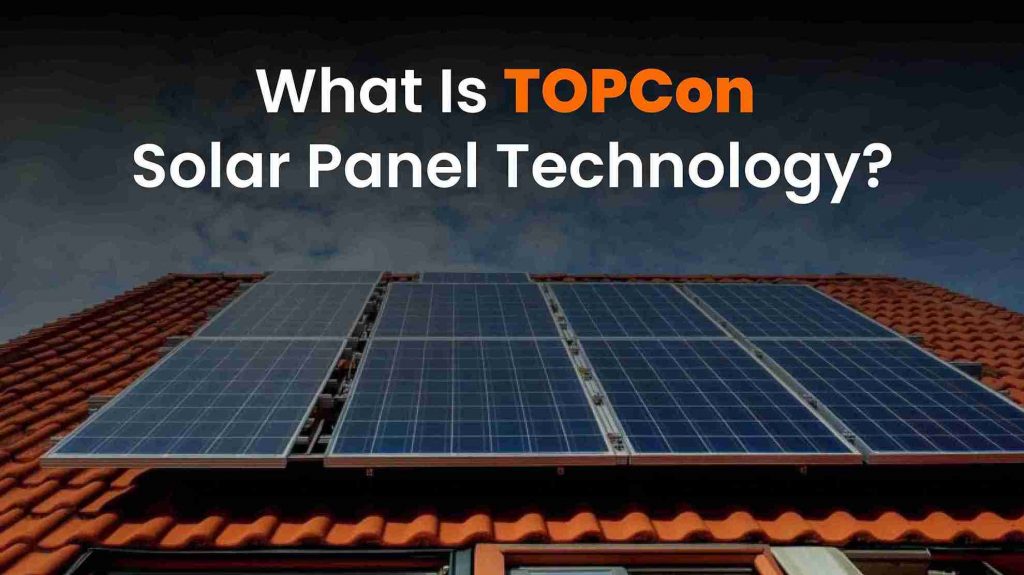TOPCon (Tunnel Oxide Passivated Contact) solar panel technology is poised to become a leading contender in solar panel manufacturing, surpassing the widely used PERC (Passivated Emitter Rear Contact) technology. Introduced in 2013 by Germany’s Fraunhofer Institute for Solar Energy Systems, TOPCon combines a tunneling oxide layer with a PERC solar cell to enhance efficiency by reducing recombination losses.
While PERC technology has a theoretical efficiency limit of about 24%, TOPCon improves on this by adding a thin oxide layer to the back of PERC cells. This additional layer acts as a barrier, helping to absorb more light and increase efficiency. In fact, several manufacturers have achieved remarkable efficiency gains with TOPCon cells: in 2021, LONGi reached 25.21% efficiency, and JinkoSolar soon followed with 25.4%. By 2022, Trina Solar hit 25.5% efficiency using larger 210-mm cells, a significant step forward.
TOPCon solar panel
TOPCon also outperforms PERC in terms of bifaciality, a measure of how much energy is captured from the rear side of the solar module. With an 80% bifaciality rate compared to PERC’s 70%, TOPCon is particularly suited for ground-mounted utility projects, where it can harvest more energy from reflected sunlight.
A key advantage of TOPCon is that it can be easily integrated into existing PERC production lines. Unlike other advanced technologies like heterojunction (HJT) or interdigitated back contact (IBC) cells, which require entirely new manufacturing processes, TOPCon involves just a few additional steps. This makes it a cost-effective upgrade for manufacturers. According to specialists in the solar industry, TOPCon offers the best balance of efficiency, reliability, and capital cost, positioning it as the leading n-type solar technology within the next five years.
As the industry continues to seek higher efficiency and more reliable solutions, TOPCon is expected to become as widespread as PERC in the crystalline silicon solar market. Manufacturers are likely to adopt this technology soon, driven by its compatibility with existing production processes and its superior energy yield.
If you have any more questions or doubts, talk to us! One of our solar experts will be happy to help.




